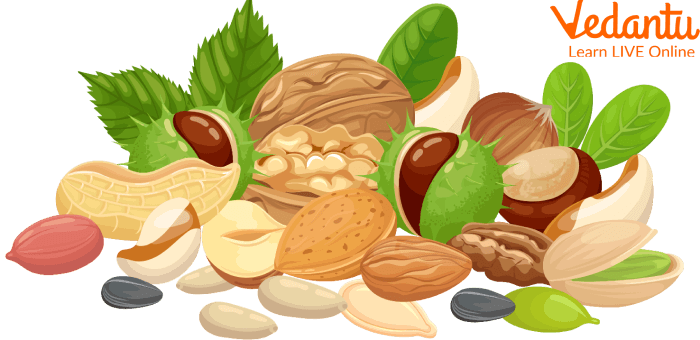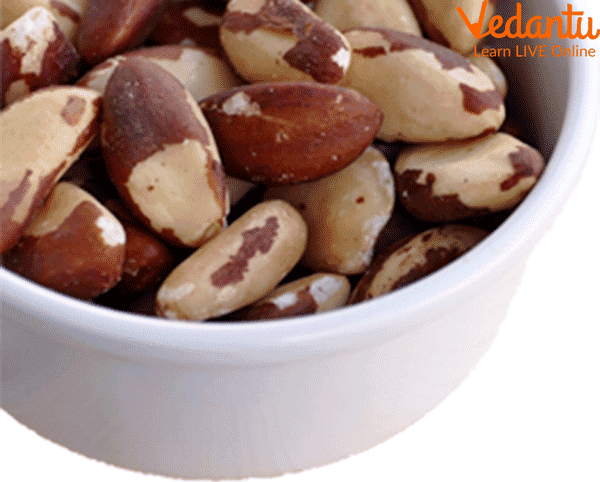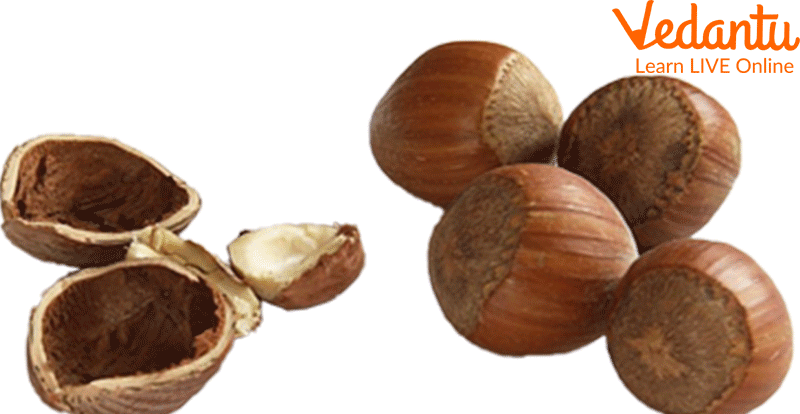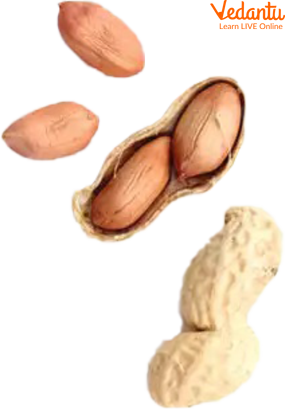




List of Common Nuts Names with Images and Health Benefits
Nuts are flavourful, easy to eat, high in good fats, and loaded with important vitamins and minerals. A nut is a seed protected by a tough shell that must be broken open to consume the nut. A seed, on the other hand, is an ovule that has been fertilised by a plant and is protected by a seed shell that contains nourishment that will be used to feed the growing plant.
Almonds, walnuts, macadamia nuts, and Brazil nuts are among the nutritious nut species associated with heart health. Numerous animals enjoy eating nuts due to their stiff to crunchy, and extremely oily bodies.
Types of Nuts
There is a huge variety of edible nuts in the world, and many nations have farms of trees that produce nuts specifically. A few of them are listed below, along with their health benefits.

Types of Nuts
Cashew
Like many other alleged "nuts," cashews aren't actually nuts. Instead, they are a seed that develops near the fruit's base.
The presence of beta-carotene in cashew nuts is one of the reasons why eating them can improve your health. Beta-carotene is converted by your body into vitamin A, which is essential for healthy vision. Lutein and zeaxanthin, which are also found in cashews, aid in the prevention of age-related eye problems.
Almonds
In the US, almonds are the most widely consumed nuts. High in plant-based protein, fibre, lipids, and important nutrients like vitamin E and magnesium, they make a heart-healthy snack.
Consuming more almonds can help lower the risk of type 2 diabetes, among other health benefits. Consuming almond nuts can aid in reducing insulin levels and preventing post-meal blood glucose rises.
Almonds make a great snack since they are high in fibre and antioxidants.

Cashew and Almond
Walnuts
Walnuts have been discovered to contain twice as many antioxidants.
The antioxidant and anti-inflammatory properties of walnuts make them beneficial for consumption. According to studies, a diet high in walnuts can support brain function and slow the effects of ageing.
Brazil Nuts
Brazil nuts are one of the best food sources of selenium and are also a good source of micronutrients like magnesium, copper, and zinc.
Additionally, they offer a good fatty acid profile and a lot of protein. Eating a few Brazil nuts daily has several health advantages, including lowering cholesterol.
Brazil nuts, like most wholesome nuts, have anti-inflammatory qualities that can lessen the risk of chronic inflammation.

Brazil Nut
Hazelnuts
Hazelnuts are among the most delectable nuts, and they are simply impossible to resist in many different contexts.
Consuming enough hazelnuts, according to one study, can lower "bad" cholesterol (LDL) and reduce inflammation. For a period of four weeks, participants in the study consumed 20% of their daily energy needs in hazelnuts.

Hazelnuts
Macadamia Nuts
The creamy, and buttery macadamia nut is more expensive than other varieties of nuts. They have more fat and less protein than almonds and pistachios, but they still have a lot of fibre.
Unsaturated fat makes up the majority of the macadamia nut's fat content. According to one study, consuming macadamia nuts together with a low-fat diet reduced levels of LDL, bad cholesterol.

Macadamia Nuts
Pistachio
Not only are pistachios delicious, but they are also very healthy for you. They are high in protein, low in calories, and high in good fats, and antioxidants.
Eating pistachio nuts before and after exercise can improve performance because they're a good source of energy.

Pistachio Nuts
Peanuts
Technically speaking, peanuts are a legume that resembles peas and beans more than genuine nuts. Peanut consumption, according to studies, may benefit your heart.
Consuming peanuts regularly can reduce your risk of cardiovascular disease and guard against magnesium shortages.

Peanut
Summary
The article tells us about the basic knowledge of nuts and their health benefits. The types of nuts like cashew and almonds are discussed in the article, along with their images. The importance of each nut is discussed in detail. Our body needs the minerals and vitamins of nuts. Therefore, we should consume nuts on a daily basis.
FAQs on Nuts Names: Pictures and Facts for Easy Learning
1. Define nuts and their importance.
Nuts are seed kernels that are frequently used as a snack or in food. They contain a lot of calories and fat. To release the kernel inside, the hard, inedible outer shell of these nuts must typically be cracked open.
Eating nuts as part of a heart-healthy diet may be beneficial. Unsaturated fatty acids and other nutrients can be found in nuts. They also make a wonderful snack meal because they are cheap, portable, and simple to store. Because nuts contain a lot of calories, it's crucial to keep your intake in check.
2. Write a short note on the benefits of walnuts.
According to scientists, walnuts are the healthiest type of nut. It has been found that walnuts contain twice as many antioxidants as other nuts like peanuts, almonds, pecans, and pistachios.
Increased walnut consumption for six months lowered cholesterol, blood pressure, and blood sugar levels, according to one study. Walnut has fatty acid, which is the healthiest for our body. It is good for our hearts too. Thus, walnuts are a good option to have in our daily diet.









